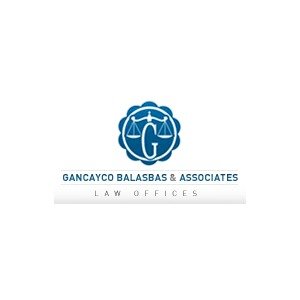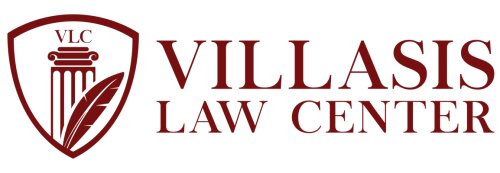Best Asylum Lawyers in Manila
Share your needs with us, get contacted by law firms.
Free. Takes 2 min.
List of the best lawyers in Manila, Philippines
About Asylum Law in Manila, Philippines:
Asylum law in Manila, Philippines provides protection and assistance to individuals who have left their home country due to well-founded fears of persecution based on factors such as race, religion, nationality, political opinion, or membership in a particular social group. The Philippines, being a signatory to the 1951 Refugee Convention and its 1967 Protocol, allows individuals to apply for asylum within its territory.
Why You May Need a Lawyer:
If you are seeking asylum in Manila, Philippines, it is advisable to seek the assistance of a lawyer due to the complexity of immigration laws, procedural requirements, and the need to present a compelling case for asylum. Lawyers specializing in asylum can provide invaluable guidance, help gather necessary evidence, prepare and present your application, and represent you during interviews or hearings.
Local Laws Overview:
In Manila, Philippines, the key aspects of local laws relevant to asylum include:
- The Refugee Act of 2009: This provides the legal framework for the recognition and protection of refugees in the Philippines.
- Legal and administrative requirements: Asylum seekers must adhere to specific procedures, including filing an application within a certain timeframe, providing relevant documentation, and attending interviews and hearings.
- Non-refoulement principle: Manila, Philippines upholds the principle of non-refoulement, meaning individuals cannot be returned to a country where they may face persecution.
Frequently Asked Questions:
1. Can I apply for asylum in Manila, Philippines?
Yes, Manila, Philippines allows individuals to apply for asylum if they can demonstrate a genuine fear of persecution in their home country based on protected grounds.
2. What are the grounds for seeking asylum in Manila, Philippines?
Asylum can be sought based on factors such as race, religion, nationality, political opinion, or membership in a particular social group.
3. How long does the asylum process in Manila, Philippines take?
The asylum process duration can vary depending on various factors, including the complexity of the case and the caseload of immigration authorities. Generally, it might take several months to years to receive a decision on your asylum application.
4. Can I work while my asylum application is pending?
Unfortunately, Manila, Philippines does not currently grant asylum seekers permission to work while their application is pending.
5. Can I appeal a negative decision on my asylum application?
Yes, if your asylum application is rejected, you have the right to appeal the decision within a specified timeframe. Consulting with a lawyer is essential to navigate the appeal process effectively.
Additional Resources:
- Philippine Commission on Human Rights (CHR): The CHR provides assistance and protection to individuals in need, including asylum seekers. Visit their website for guidance and contact information.
- United Nations High Commissioner for Refugees (UNHCR) Philippines: UNHCR works in partnership with the government and NGOs to provide support and information to refugees and asylum seekers in the Philippines. Their website contains resources and contact details.
- Legal Aid NGOs: Several non-governmental organizations in Manila, Philippines offer free or low-cost legal aid services to asylum seekers. Research and reach out to organizations like the Center for Migrant Advocacy (CMA) for additional assistance.
Next Steps:
If you need legal assistance regarding asylum in Manila, Philippines, consider taking the following steps:
- Research experienced immigration lawyers or legal organizations specializing in asylum cases.
- Schedule a consultation with a lawyer to discuss your situation and legal options.
- Prepare any relevant documentation or evidence to support your asylum claim.
- Follow the prescribed procedures for filing an asylum application with the appropriate government agency.
- Cooperate with your lawyer throughout the process, attending interviews and hearings as required.
- In case of a negative decision, consult your lawyer about the possibility of an appeal.
Lawzana helps you find the best lawyers and law firms in Manila through a curated and pre-screened list of qualified legal professionals. Our platform offers rankings and detailed profiles of attorneys and law firms, allowing you to compare based on practice areas, including Asylum, experience, and client feedback.
Each profile includes a description of the firm's areas of practice, client reviews, team members and partners, year of establishment, spoken languages, office locations, contact information, social media presence, and any published articles or resources. Most firms on our platform speak English and are experienced in both local and international legal matters.
Get a quote from top-rated law firms in Manila, Philippines — quickly, securely, and without unnecessary hassle.
Disclaimer:
The information provided on this page is for general informational purposes only and does not constitute legal advice. While we strive to ensure the accuracy and relevance of the content, legal information may change over time, and interpretations of the law can vary. You should always consult with a qualified legal professional for advice specific to your situation.
We disclaim all liability for actions taken or not taken based on the content of this page. If you believe any information is incorrect or outdated, please contact us, and we will review and update it where appropriate.












